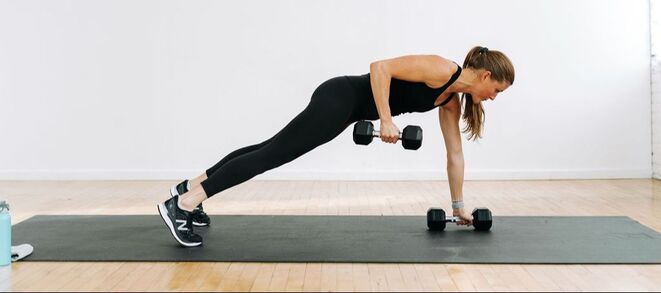|
1. Strength Training improves muscle mass, which can help us in our everyday lives Looking like the incredible hulk or the next bodybuilding queen are not the only reasons to strength train, and for probably around 98% of the population, these are not the reasons we strength train. Some might strength train to improve their athletic performance, improve flexibility and reduce incidence of injury or chronic disease. However, at the very least improving your strength can help with everyday tasks such as moving the lawn, lifting the groceries, shifting furniture, and cleaning your house. For most people these jobs are not the most enjoyable in the world, therefore having good strength and stamina to get them done quicker and with less effort is a great outcome. 2. Strength training improves bone mineral density As we age, and particularly for females who are post menopausal, our bone mineral density can decline. There is evidence to suggest that we can lose as much as 3-5% per decade after the age of 30. This can increase a person's risk of a fracture if they were to have a fall, and lead to reduced quality of life. In a study of people living with Osteoporosis who undertook a specific strength training program to improve bone density, results showed that 86% of patients increased bone mass in their lower spine, and 69% of patients increased their bone mass in their hip - which is great results for people living with this condition. 3. Strength training can help to preserve lean muscle mass during weight loss Generally when you restrict our energy intake with the goal of losing weight, not only do you lose fat mass, but also some lean muscle mass, which is not ideal. Although aerobic exercise generally forms the basis of your training if your goal is to lose weight as this form of exercise burns a greater amount of energy during your exercise session compared with strength training. Strength training does help you to maintain and preserve your muscle mass during weight loss, and can increase your excess post-exercise oxygen consumption, meaning your metabolism remains active and your body continues to burn calories after you have completed your workout. Therefore, adding resistance/strength training exercise on top of your aerobic training is beneficial when losing weight. 4. Strength training can improve your flexibility When most people consider improving their flexibility, usually yoga, or undertaking specific static stretching exercises comes to mind. Both of these activities are effective in improving the flexibility of a joint, however undertaking full range strength training has also been shown to be just as effective as flexibility training for a specific joint, and not surprisingly both are superior to doing nothing (reference). Therefore, adapting your program to include some full joint strength exercises can effectively kill 2 birds with one stone, and reduce the need for a specific flexibility program for those strength trained joints.
Lisa Parkinson
Accredited Exercise Physiologist & Credentialed Diabetes Educator
0 Comments
Your comment will be posted after it is approved.
Leave a Reply. |
AuthorSLisa Parkinson Archives
July 2024
Categories
All
|



 RSS Feed
RSS Feed